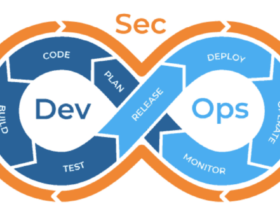In an increasingly interconnected world, the demand for digital protectors has never been higher. As cyber threats grow in sophistication and frequency, organizations across every industry are scrambling to fortify their defenses. This pressing need has propelled cybersecurity analyst jobs to the forefront of the tech job market, making it one of the most vital and in-demand career paths today. A cybersecurity analyst stands on the digital frontlines, acting as an early warning system and first responder against malicious attacks. If you’re looking for a challenging, dynamic, and rewarding career with significant growth potential, understanding the landscape of a cybersecurity analyst role is your first crucial step.
What Does a Cybersecurity Analyst Do? Roles and Responsibilities
A cybersecurity analyst is a guardian of an organization’s digital assets. Their primary mission is to protect computer systems, networks, and data from theft, damage, or unauthorized access. This role is multifaceted, requiring a blend of proactive defense, vigilant monitoring, and rapid response.
Here’s a breakdown of the core responsibilities :
In essence, cybersecurity analysts are critical thinkers who combine technical expertise with a proactive mindset to protect valuable information and maintain operational continuity.
Essential Skills and Qualifications for Cybersecurity Analyst Jobs
To excel in cybersecurity analyst jobs, a blend of technical prowess and crucial soft skills is indispensable. The rapidly evolving threat landscape demands continuous learning and adaptability.
Key Skills for Cybersecurity Analysts:
For a deeper dive into critical cybersecurity skills for 2025, you can explore resources like Teal’s guide on Cybersecurity Analyst Skills.
Education and Certifications : Paving Your Path
While practical experience and demonstrated skills are paramount, formal education and industry certifications play a significant role in securing cybersecurity analyst jobs.
Educational Background :
- Bachelor’s Degree: Most employers prefer candidates with a bachelor’s degree in Cybersecurity, Computer Science, Information Technology, or a related field. This provides a strong foundational understanding of computer systems, networking, and information security principles.
- Associate’s Degree/Bootcamps: For those looking for a quicker entry, an associate’s degree or completion of intensive cybersecurity bootcamps can provide the necessary skills for entry-level roles, especially if complemented by certifications and practical experience.
Key Certifications :
Certifications are highly valued as they validate specific skills and knowledge areas. Here are some of the most recognized and beneficial certifications:
Gaining practical experience through internships, entry-level IT roles, or personal projects (e.g., setting up a home lab, participating in Capture The Flag events) is crucial to complement formal education and certifications.
Salary and Job Outlook: A Booming Career Field
The demand for cybersecurity analyst jobs is not just strong; it’s exploding, making it one of the most secure and well-compensated careers in the tech sector.
- Job Growth: The U.S. Bureau of Labor Statistics projects a staggering 32% growth for information security analyst jobs from 2022-2032, significantly faster than the average for all occupations. Cybersecurity Ventures predicts approximately 3.5 million unfilled cybersecurity positions globally by the end of 2025. This persistent skills gap ensures high demand.
- Average Salary (2025): The average salary for a Cybersecurity Analyst in the U.S. currently ranges from $85,000 to $105,000 annually, with variations based on experience, location, certifications, and industry. Entry-level positions typically start around $60,000-$70,000, while experienced analysts can earn well over $120,000. Certifications like CISSP or cloud security specialties can significantly boost earning potential. For more detailed salary insights, check out guides like NetCom Learning’s Cybersecurity Analyst Salary Guide for 2025.
- Benefits: Beyond competitive salaries, cybersecurity roles often come with attractive benefits, including comprehensive health insurance, retirement plans, professional development opportunities, and sometimes even flexible or remote work options.
The increasing reliance on digital infrastructure, coupled with the escalating sophistication of cyber threats (ransomware, phishing, AI-driven attacks), ensures that the need for skilled cybersecurity analysts will continue to grow for the foreseeable future.
Career Progression and Specializations
A role as a cybersecurity analyst often serves as an excellent foundation for a diverse and rewarding career in information security. With experience, individuals can specialize or move into more senior and strategic roles.
Common career paths include:
- Senior Cybersecurity Analyst / Lead Analyst: Taking on more complex incidents, mentoring junior analysts, and leading incident response teams.
- Security Operations Center (SOC) Manager: Overseeing the entire SOC team, managing operations, and optimizing security monitoring processes.
- Penetration Tester / Ethical Hacker: Specializing in actively identifying vulnerabilities by simulating cyberattacks and providing recommendations to strengthen defenses.
- Threat Intelligence Analyst: Focusing on gathering, analyzing, and interpreting intelligence on emerging threats to provide proactive defense strategies.
- Incident Response Specialist / Digital Forensics Investigator: Deep-diving into the aftermath of breaches, conducting forensic analysis to understand how attacks occurred, and assisting with legal proceedings.
- Security Engineer: Designing, building, and implementing secure network and system architectures.
- Security Architect: Developing the overall security framework and strategy for an organization, ensuring alignment with business goals.
- Governance, Risk, and Compliance (GRC) Analyst: Ensuring an organization meets regulatory requirements and industry standards, managing security risks, and developing compliance policies.
- Chief Information Security Officer (CISO): A senior executive role responsible for an organization’s entire information security strategy and program.
Continuous learning, obtaining advanced certifications, and networking within the cybersecurity community are vital for upward mobility in this dynamic field. You can explore more about cybersecurity career roadmaps and specializations at Coursera’s Cybersecurity Career Paths article.
Cybersecurity analyst jobs offer a compelling career trajectory for individuals passionate about technology, problem-solving, and protecting digital assets. With robust job growth, competitive salaries, and diverse specialization opportunities, this field provides both stability and excitement. As the digital world expands, so too does the need for vigilant guardians. Embarking on a career as a cybersecurity analyst means joining the critical fight against cybercrime, making a tangible impact on an organization’s security posture, and continuously evolving your skills in a fascinating and ever-changing landscape.
Ready to launch or advance your career in cybersecurity? Explore more insights, training resources, and job opportunities on our platform at jurnalin!









